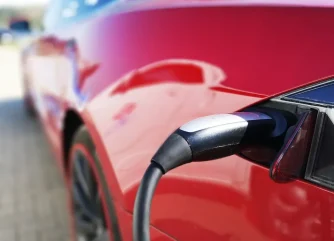
Industry figures have broadly welcomed the announcement of new flexibilities for the UK Government’s ZEV mandate.
The changes have been announced alongside confirmation that new hybrid car sales will continue to be permitted until 2025.
The announcements follow a government consultation on its decarbonisation plans, during which the Society of Motor Manufacturers and Traders (SMMT) argued that the previous framework was unsustainable.
Reacting to the latest update, SMMT chief executive Mike Hawes said: “The government has rightly listened to industry, responded quickly to global dynamics and recognised the intense pressure manufacturers are under.
“Industry remains committed to decarbonising road transport but the ZEV mandate targets are incredibly challenging, especially with a paucity of consumer demand and geopolitical upheaval. Growing EV demand to the levels needed still requires equally bold fiscal incentives, however, to give motorists full confidence to switch.
“We await full details of the regulatory amendments but, given the potentially severe headwinds facing manufacturers following the introduction of US tariffs, greater action will almost certainly be needed to safeguard our industry’s competitiveness. UK-US negotiations must continue at pace, while the long-awaited industrial and trade strategies should prioritise automotive and be delivered at speed.
“In this vastly changed world, a package of measures is needed to support manufacturing, especially the supply chain, so our industry can deliver the economic growth, jobs and investment the country needs.”
Giving its reaction, the Vehicle Remarketing Association (VRA) said it was giving a “cautious welcome” to the announcement.
Chair Philip Nothard said: “The good news is that the government has listened and made material changes. There has been a general recognition that existing targets were proving unrealistic and a relaxation was needed that accounted for real world market conditions.
“Moves such as allowing hybrid cars and diesel vans to stay on sale until 2035 will provide a degree of breathing space for manufacturers, as will the greater flexibility around production caps and car and van credits.
“It’s also encouraging that the DfT says in its announcement that the situation will be kept under review. It’s quite likely that further changes will be needed in the future, especially in light of the uncertainty that now hangs over UK motor manufacturing because of the Trump tariffs. It’s a fluid situation.”
Nothard added that the VRA still believed more support was needed for the used EV market.
He said: “While used electric cars are currently selling quickly, residual values are extremely poor and there are much greater volumes of EVs heading to the used market very soon.
“More needs to be done to make buying a used EV practical and cost-effective for more people, which means everything from assistance with purchasing to creating a more accessible and affordable charging infrastructure.”
Giving his reaction, Europcar Mobility Group UK head of electric mobility Tom Middleditch said: “[The announcements] provide the automotive sector with some much-needed clarity and support at a very challenging time. As one of the biggest customers of new vehicles, the rental industry needs a resilient and secure manufacturing sector.
“However, there is a concern that by reducing the pressure on manufacturers, businesses and private motorists will be less motivated to make the switch to zero tailpipe emissions.
“Sadly additional credits for EVs registered on rental fleets was not part of yesterday’s announcement even though rental operators could play a more fundamental role, delivering an effective alternative to the bigger commitment of leasing or purchase for businesses and private motorists. Nor did the government’s plans include any measures to reduce the cost of public charging or any initiatives to educate motorists on the benefits and ease of electric motoring, both of which are critical to growing the electric vehicle parc.
“The government clearly has a challenging task on its hands right now, but it is vital that the role electric vehicles must play in reducing carbon emissions is not forgotten.”
AA president Edmund King said: “Today’s announcements are a pragmatic step forward which we hope will help manufacturers and give confidence to drivers. The inclusion of hybrids can act as a stepping stone to help those not yet ready to make the full switch to electric.
“Our consistent message to government is more needs to be done to make EVs accessible for everyone. Generally, drivers are hesitant, but most are not hostile to the change.
“Help is needed to stimulate demand for EVs including broader fiscal incentives. Drivers still raise concerns about cost of purchase, cost of charging and availability of chargers.”





